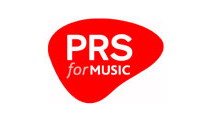This website uses cookies so that we can provide you with the best user experience possible. Cookie information is stored in your browser and performs functions such as recognising you when you return to our website and helping our team to understand which sections of the website you find most interesting and useful.
Business News Labels & Publishers
PRS For Music sees revenues continue to rise year-on-year
By Andy Malt | Published on Tuesday 8 April 2014
Revenues at the UK music publishing sector’s collecting society, PRS For Music, were up 3.7% year-on-year in 2013, to £665.7 million, beating 2012’s record-breaking revenues of £641.8 million.
The lift was aided by an 11.7% increase in international revenue. PRS cited global demand for UK TV shows and an increased prevalence of PRS members’ music on cable TV networks, particularly Arctic Monkeys, Mumford & Sons and Ellie Goulding, for the lift. North America alone saw a 10% increase, while Australia was up 18%. European revenues were also up 15% year-on-year.
The boost in revenues came despite a stark drop in income generated for songwriters and publishers from the sales of recorded media, which fell 21% in 2013, thanks in part to the streamlining of HMV. In total, recorded media brought in £80.7 million.
As well as the increase in international revenues, this decline was offset by an 18.3% increase in revenues from online services to £61.2 million, the PRS particularly noting Deezer and YouTube, and a 4.8% increase in revenues from TV and radio, to £160.4 million. This latter boost was largely down to new licenses, particularly BT Sport, and licence renewals for companies including Sky.
Commenting on the figures, PRS For Music Chief Exec Robert Ashcroft said: “As one of only three net exporters of music, these financial results underline the strength of our repertoire. By securing a series of new licensing deals at home, online and abroad, we’re successfully growing the market for our members. PRS For Music’s vital role at the heart of the music industry ensures that the popularity of music translates into earnings for our members – so they can continue to create the music that enriches all our lives. Copyright remains fundamental to our members’ success. It’s the lifeblood that keeps the wheels of creative production turning and that underpins the global creative economy”.
But he would say that wouldn’t he?






